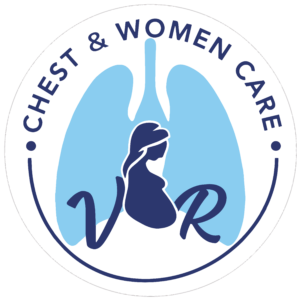Hysterectomy is the surgical technique for the removal of the uterus. After the removal of the uterus, menstruation doesn’t happen and conceiving/becoming pregnant is not possible.
The procedure is done for various indications:
1.Uterine or ovarian cancer
2.Cervical cancer
3.Abnormal uterine bleeding which doesn’t reduce with medicines
4.Adenomyosis where the endometrial tissue is deposited within the muscles of the uterus
5.Endometriosis (menstrual blood deposited inside the abdomen) causing severe dysmenorrhea
6. Fibroid uterus
7.Hyperplasia of endometrium or excess growth of the endometrial lining
8. Precancerous lesions in the cervix (which if not treated can turn into cancer)
9.Prolapse of the uterus
10. Severe PID or infection
What are the alternative options for hysterectomy?
1.Symptomatic treatment of bleeding and pain
2. Hormonal pills
3.Hormonal IUDs
4.D and C
The procedure can be done in various routes:
1.Vaginal
Here, the procedure is done entirely by vaginal route, without giving any incision or cut on the abdomen.
Uterus along with fallopian tubes with or without ovaries are removed vaginally. It is usually done in cases of prolapse where the vaginal muscles are lax and uterus is protruding below.
The gynaecologist will decide based on the size of the uterus and laxity of the ligaments, whether a vaginal surgery can be done or alternative route is required.
Advantages: Quick recovery
Less pain
Less blood loss
2. Laparoscopic
Here, we fill the abdomen with carbon dioxide gas and use tiny incisions like 0.5-1cm, through which we insert camera and instruments. We do the surgery by visualising the organs via a TV monitor. Uterus along with tubes or ovaries are removed vaginally.
The vaginal cut is sutured back. At the end of the surgery, the gas is released outside and small incisions are closed.
Advantages: Reduced pain, blood loss
Easy recovery
3. Abdominal surgeries
In few cases where there is suspicion of cancer or a very big tumour, there will be a need to open the abdomen upto 8-10cm in length and do the surgery. The pain is more and recovery is slower as the incision is bigger.
What are the type of anaesthesia given?
1.General anaesthesia– where you will sleep through the procedure
2.Spinal anaesthesia– Where a small needle is inserted into the back to deliver the drug into the spinal cord region. You will be awake and numb below the chest.
3.Epidural analgesia– may be added to give extra pain relief after the surgery if the surgery is expected to take longer time or after abdominal surgeries.
What are the complications?
Hysterectomy is a commonly done surgery and generally considered safe. However, few complications can happen rarely.
1.Risk of bleeding
2.Infection
3.Bladder and intestine injury
4.ureteric injury
5.complications of anaesthesia
What should you expect after surgery?
1.Patients are kept nil per mouth 6 hours before and after surgery
2. Will be started with liquid diet followed by soft diet after 12-24 hours.
3. Discharge happens after 24-48 hours in laparoscopic or vaginal surgeries or after 3 days in case of abdominal surgery.
4.For a short period of time, catheter will be placed for drainage of urine.
5.Pain can be there for 3-4 days and as we use waterproof dressing, taking bath daily is advised.
6. Some amount of spotting or vaginal discharge is expected from the wound inside the vagina upto a week.
6.Stitches are removed after 7 days in case of laparoscopy or abdominal surgery. In vaginal surgery, there is no external cut and no need for removal of stiches.
7.You will be able to do light activities after a week in laparoscopic or vaginal surgeries and start your routine after a month. In abdominal surgeries, you will return back to routine lifestyle after 6-8 weeks.
8.Complete bed rest is not suggested and should be avoided as it can increase the risk of clotting in the legs.
9.Sexual intercourse should be avoided for 2 months
10.Lifting heavy weights should be avoided for a period of 2 months.
When should you go to emergency?
1.High grade fever
2.Discharge from the wound
3.Foul smelling discharge from the vagina
4.Difficulty in passing urine
5.Nausea and vomiting
6.Severe abdomen pain
What questions you can discuss with the doctor in addition?
1.Removal of ovaries can cause menopause. So discuss whether its required in your case or can be left alone.
2. Laparoscopy or vaginal routes cause faster recovery and safe too. Discuss about the type of hysterectomy.

